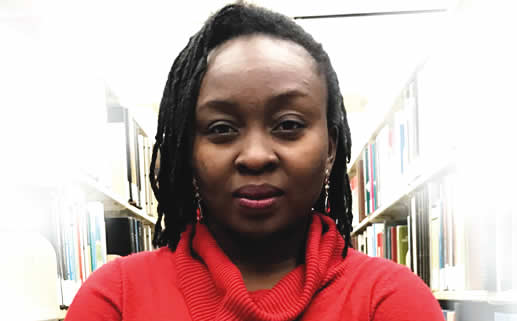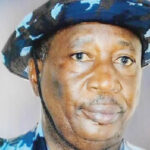
On Sunday, while visiting the president, Prof. Wole Soyinka told a journalist who asked him to assess the present administration that he typically gives presidents one year into their respective tenures. He thinks that gives the presidents starting from “ground zero” (or lower) enough time to “make up” for lost grounds. The grounds for Soyinka’s decision are certainly understandable, but Bola Tinubu knew he would be the president since February—a solid three months before the inauguration. That was enough time to start grounding himself in governance. All the while he was all over the place parading his certificate of return, he could have judiciously prepared himself for the monumental task ahead.
There is a reason the tradition of examining after the first 100 days exists. The date itself is not magical, but it is the time presidents still enjoy some liminality and therefore inaugurate policies that set the nation on course. Within that window, they still have some leftover goodwill from the elections. Also, some of the powers and principalities that a president must battle to get anything done have also been reshuffled as a consequence of the election. Some of the old leaders would have been retrenched while their supplanters would not yet be entrenched. That interregnum allows the leader the opportunity to make the decisions they will consolidate throughout their tenure. If they miss it, nothing they do after their first or fourth years quite matters anymore.
Overall, this was a difficult year for many Nigerians and Tinubu is a direct witness. If there is anyone who should be struck with the urgency of reforms, it should be him. Right from the start, people went through so many needless hardships that it would have been justifiable if they had broken loose into the streets and started a massive protest.
We entered the new year with the problem of cashlessness, not just in the sense of people being broke, but because of the induced scarcity of physical money through a misbegotten Naira redesign. Because of that policy, there was so much tension and hardship that one wonders why former President Muhammadu Buhari would culminate his uninspiring tenure in inflicting such punishment.
On the few occasions Buhari addressed the public on the issue, it was to double down on the necessity of making Nigeria cashless before the general election. A more humane person would have realised his error and pulled back, but not that man. So, you can imagine the shock of reading Jim Obazee, the “Special Investigator” looking into the corruption that unfolded at the Central Bank of Nigeria exonerating Buhari. Even if Buhari did not know the full scale of what Emefiele proposed, he did not watch the news or read the newspapers? The same Buhari met King Charles in the United Kingdom and insisted the policy had come to stay because it would protect Nigerians from those who would use their hefty war chest to manipulate the 2023 election outcome. While Buhari actively detached himself from the reality of those he governed, he was not dumb.
Anyway, hardly had Nigerians survived the Naira redesign debacle when the general elections took its toll. Not only did the process drain financially, but it also cost us ethically. Some 23 years after we started the 4th Republic, we still fail at conducting viable elections. No reasonable person will claim that the process improved the quality of our democracy. People—both the supposed winners and losers—already impoverished by the years of bad governance turned on each other like rabid dogs and ate each other’s flesh raw.
The acrimony that attended the election was short-lived though, and which is one of the good things about Nigeria. It does not take time for a new government to falter to the point that the aftermath of the election conversation quickly shifted from triumphalism to groans and moans from people concerned with survival.
The high expectations with which some self-deluded folks welcomed Bola Tinubu quickly turned into disappointment. Not only did he introduce some harsh reforms, but he also failed to mitigate the suffering of the people who had already been through hell at the hands of his predecessor. The palliatives they claimed to roll out were so poorly conceived even a child knew how the attempts would fare. If you thought they learnt anything from that experience, then you must not have paid them full attention. The same government recently rolled out another palliative to alleviate the high cost of transportation during the festive season. According to presidential aide Bayo Onanuga, five transport companies who ferry 51 passengers each have been selected to transport five million Nigerians from December 21 to January 4 (and what is it about the recurrent fives?).
According to the success report issued by the Federal Ministry of Transportation, 128 Nigerians altogether enjoyed this “Renewed Hope discount” on Christmas Day. Nothing else needs to be said about the level of shallowness that underwrites the administrative mindset that even considered that development worth reporting.
Nigerians who thought they jumped out of the Buhari frying pan soon found their greased selves inside the fire of a government that serially asks people to sacrifice for the greater good but cannot bring itself to live by the same ethic.
Within months, diehard supporters were making videos to complain about the pounding hardship they were facing, the insufficiency of the supposed palliatives, and—trust Nigerians—the schadenfreude of being the ones whose votes invited the plague. It did not take too long for the honeymoon to become a nightmare. Come 2027, the same people are still likely to vote for him. All it will take is for the likes of Onanuga to unleash another groundbreaking revelation about how the Igbo are about to collect Lagos from Yoruba hand, and they will fall in line.
In addition to a harsh economy and the amorality of those running it is the perennial problem of insecurity. Consider the lacklustre response of the government to the “accidental” bombing in Kaduna and the Christmas Day attacks in Plateau State, and you will not need a whole year to conclude that these ones are just going to be issuing prefabricated responses to insurgent attacks.
What you will not lack under this government will be entertainment, especially if you are easily amused by repeated stupidity. The show has started, and we are already being treated to the standard complaint of how badly the previous government looted the treasury. Just like former Petroleum minister Alison Diezani became the face of the corruption of the preceding government, ex-CBN governor, Godwin Emefiele, too is now the symbol of everything stolen under Buhari. Never mind that some of those currently opening their surprised mouths at the heist perpetrated under the watch of the “anti-corruption” president were active participants in Buhari’s government.
As for Emefiele, give it a little time and he will walk free like everyone before him who became a character in the post-election morality play politicians regularly stage to assert their legitimacy. Same plot, just a different set of characters. The fact that successive leaders are not creative enough to alter the script of this yawn fest is proof that they will also lack original ideas of development.
And if anyone still harbours the thought that there was a corner to be turned, Tinubu’s wife, Oluremi, dispelled such fantasies when she said her husband lacked the magic for transforming Nigeria. The president will at best be an allocator of resources and—from his intervention into the Ondo and Rivers crises—a settler of political fights. Since February when Tinubu’s clock started ticking, he has had enough time to prove himself. The next two or five months will not unfold any major surprises; what you already see is what their administration is.














